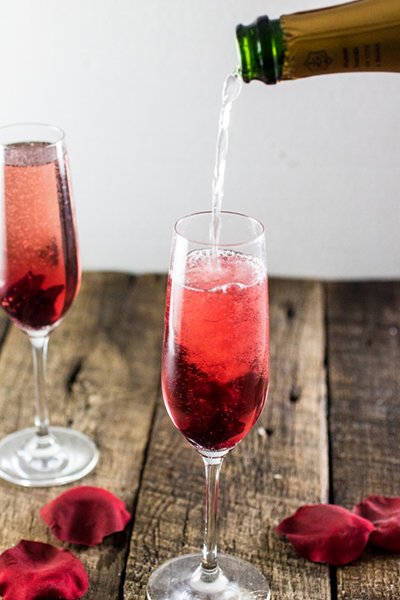Native hibiscus dulls male libido, says Indigenous botanist

IT’S A COMMON practice at weddings to place the bud of a hibiscus flower in a flute of champagne and watch the petals slowly unfurl, sweetening the drink with nectar.
Hibiscus petals stewed in syrup can also be used to spruce up sparkling wine into a celebratory cocktail by tingeing it pink, and the edible flowers have a tart taste similar to raspberries or rhubarb.
But according to the knowledge of botanist Fran Bodkin, a descendent of the D’harawal people of the Bidiagal clan, newlyweds might want to rethink using native hibiscus at their wedding ceremonies.
She says the nectar of native hibiscus plants – of which there are around 40 species – has actually been used for thousands of years by Indigenous people to dull male libido.
Ancient Scientific Knowledge
Aunty Fran Bodkin is on a mission to connect Western science to the Indigenous knowledge passed down by her mother. She has majors in environmental science, geomorphology and climatology, and is the author and illustrator of Encyclopaedia Botanica: The essential reference guide to native and exotic plants in Australia.
Fran told the ABC, ‘Aboriginal knowledge is a science, because two of the most important elements of any of our sciences is observation and actual experience. And those observations and experiences have been put into story. Some of those observations – some of our science – goes back 80,000 years.’
In a recent interview with Richard Fidler for his Conversations podcast about Indigenous knowledge of Australia’s plants, Fran says that she always chuckles when she sees young couples sipping champagne spiked with hibiscus.
‘When our men went out to war, we would give them a certain plant, and that would make them really brave and very active,’ she said. ‘And then when they came home they were still a bit active, and it gets a bit tiresome after a while.’
She explained the men would be given hibiscus nectar to drink as it was believed to calm the men, dampen desire and act as a contraceptive.

Recent studies
Experiments have shown that hibiscus extract from Hibiscus rosa-sinensis, a species native to East Asia with large orange blossoms, significantly reduces sperm production in rats, and in some cases reduced the size of their testicles.
The tea of hibiscus is promoted as having such health benefits as lowering blood pressure, improving digestion and aiding the prevention of some cancers.
But in light of findings that hibiscus can alter estrogen levels and affect fertility in both men and women, the authors of one study warned that extract from the plant ‘should be consumed with caution’.
While it’s unlikely that drinking a hibiscus-infused beverage has any significant long or short-term effects, the evidence is stacking up enough for some researchers to suggest the potential of developing hibiscus into a medical contraceptive.
Potential for plant-based male birth control?
Male contraceptive technology hasn’t changed in the last hundred years, so the responsibility of preventing unwanted pregnancy frequently falls on women.
Medical contraceptives for women became widely available in the Western world in the 1960s with the introduction of the pill, whereas contraceptive technologies for men haven’t updated for the last hundred years, bar invasive and often permanent methods such as vasectomy.
A male contraceptive derived from plants would be ideal, researchers have pointed out, as plant-based medications are often cheaper, readily available and have less side effects than synthetic compounds. These traits would be particularly beneficial in countries that have areas of extreme poverty such as India, where options for family planning are limited.
An extract from cotton was trialed as an oral pill in China as a male contraceptive, and while it did reduce sperm production, 20 per cent of the test subjects were permanently effected by the trail.
A study on the use of an extract from papaya seeds on monkeys proved promising when the compound appeared to stop the monkey’s sperm production without affecting their sexual organs, and sperm production continued normally once exposure to the extract was stopped.
Further studies on hibiscus have continued to ratify its potential as a safe, reversible contraceptive pill too, and botany experts have called for more research into hibiscus as a cheap option for birth control. One researcher noted that in particular, it was the flowers that exhibited ‘remarkable contraceptive properties’.
Perhaps our beautiful hibiscus blooms should be reserved for the bride’s bouquet.
READ MORE:
- The botanical illustrations of Anne Hayes
- An illustrated guide to Australia’s gum blossoms
- Australia’s emblematic beauties illustrated




